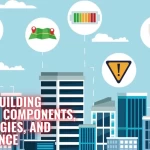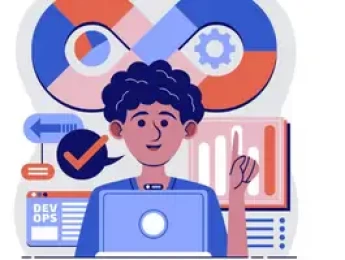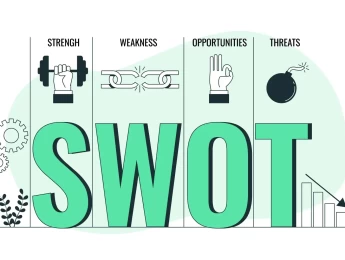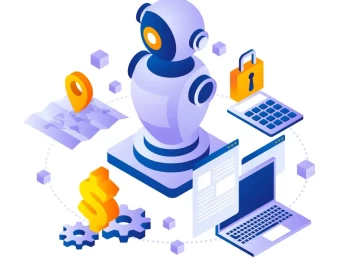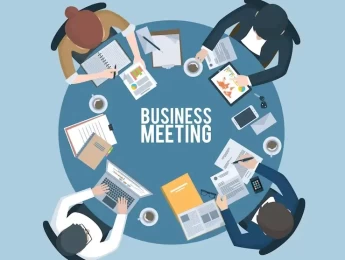IT solutions are essential to any successful business. Businesses rely on IT to manage customer contact, client communication, marketing strategies, and sales records. IT is also a platform for telephony servers and websites, keeping businesses online and in front of customers.
But because IT is constantly updating and undergoing changes, to stay ahead of the game, it’s essential that any planned IT updates go smoothly and keep your business online and functioning as normal throughout the transition.
IT project planning isn’t just about the changes you want to make and how to get there. It’s also about keeping your business online throughout the change and considering what impacts the changes may have on your overall operation.
IT projects also involve budgeting and staffing considerations, which may affect roadmap timeframes for paying for development and planning training and recruitment where required. For this reason, it’s important that those planning IT projects understand the strict timelines and create iron-clad operational frameworks to consider and mitigate risks to IT, developing continuity plans to ensure that all IT solutions remain online and functioning at all times.
Upon completion of this course, participants will be able to:
- Understand the need for IT changes and how they benefit businesses.
- Develop a strategic framework for the change.
- Gain buy-in from stakeholders or investors for your planned project.
- Understand the cost implications against your budget.
- Create an effective continuity plan to keep your business running throughout the change.
- Develop a roadmap for the change with accurate timescales.
- Understand the risk areas and place mitigation methods where possible.
- Develop knowledge or key tools and techniques to help your project plan run smoothly.
- Review good change implementation plans against unsuccessful ones in similar business areas.
- Gain feedback on your change and improve to stay current in your field.
This course was designed for anyone responsible for planning and organising IT developments within a company and reviewing the current offerings to stay current in your field. It would be most beneficial for:
- IT Support Specialists
- Operations Managers
- Project Planners
- Change & Control Managers
- Process Writers
- IT Directors
- Business Owners
- Sales Managers
- Marketing Managers
- Risk Assessors
- Auditors
- Developers
This course uses various adult learning styles to aid full understanding and comprehension. Participants will review multiple technology platforms, their uses, and functions to determine potential positive change for their business. They will view presentations, participate in group discussions regarding best practices for change, and complete group practical activities to plan a strategic roadmap for new projects.
Their roadmaps will be reviewed throughout the group to identify potential pain points, and teams will work together to create continuity plans. Finally, each group will plan a presentation of their planned change, identifying requirements and describing their budgeting and timescales for completion.
Day 5 of each course is reserved for a Q&A session, which may occur off-site. For 10-day courses, this also applies to day 10
Section 1: Your Business Priorities
- Journey mapping - what is your business lacking?
- Competitor evaluation.
- Aligning your business priorities with your IT roadmap.
- Optimising your IT solutions.
- Setting your objectives.
- Making good financial decisions.
Section 2: Advanced Project & Portfolio Management
- Considering development costs.
- In-house recruitment and expertise regarding IT solutions.
- Conducting a SWOT analysis.
- Creating a Gantt chart to understand your timelines.
- Validating your business case.
Section 3: Communication Technology & Managing Expectations
- LEAN methodologies and automation to cost-save.
- SMART targets to generate buy-in.
- Making changes based on data.
- Reporting and feedback to formulate your business case.
- Negotiation and timeframe management.
- Effective project governance.
Section 4: Creating Your Strategic Roadmap
- Communication platforms and what works best for your strategy.
- Developing mutually beneficial business relationships remotely.
- Checkpoints and review sessions.
- Handling failures and difficult situations.
- Business continuity planning.
- Testing phases and rollout announcements.
- Rolling back when there are problems.
- Sandbox and Beta testing.
Section 5: Commercial Understanding & Future Thought
- Reading the future market.
- What are your customers and clients likely to expect?
- Staying ahead of the game.
- Making the most of your budget.
- Investing for the future.
- Agreeing on future resources and project aims.
- Predicting market changes.
Upon successful completion of this training course, delegates will be awarded a Holistique Training Certificate of Completion. For those who attend and complete the online training course, a Holistique Training e-Certificate will be provided.
Holistique Training Certificates are accredited by the British Assessment Council (BAC) and The CPD Certification Service (CPD), and are certified under ISO 9001, ISO 21001, and ISO 29993 standards.
CPD credits for this course are granted by our Certificates and will be reflected on the Holistique Training Certificate of Completion. In accordance with the standards of The CPD Certification Service, one CPD credit is awarded per hour of course attendance. A maximum of 50 CPD credits can be claimed for any single course we currently offer.
- Course Code PO4-106
- Course Format Classroom, Online,
- Duration 5 days


